Vegan nutrition healthy: The 9 most common myths and errors at a glance!
No matter whether for political, religious, social or ethical reasons – vegans and vegetarians have always existed. According to the latest statistics, more than 1 million people eat a purely plant-based diet and there are even 1 billion worldwide, which corresponds to around 13% of the world's population. But there is no other form of nutrition discussed as often as veganism. Anyone who has opted for a purely plant-based diet has been prejudiced several times about their decision and had to defend themselves against a number of arguments. Is the vegan diet healthy and what are the most common diet myths? All this and much more can only be found in our article!
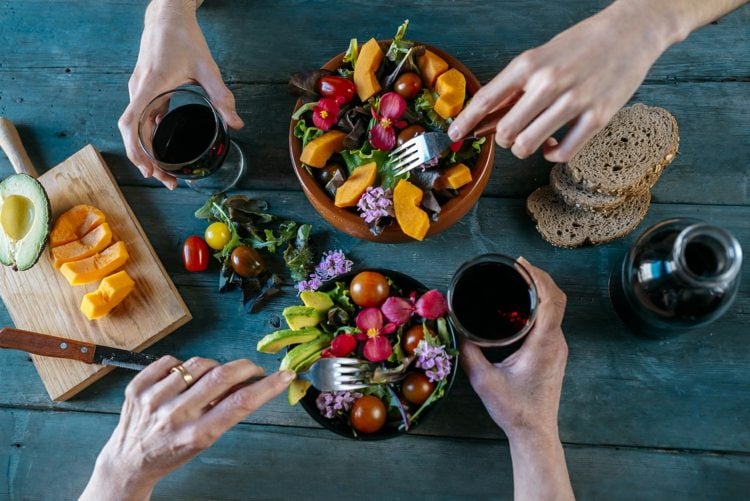
Despite the ever growing popularity of plant based foods, there are still many things that people just don't understand or know. The World Health Organization recommends this diet for the treatment and prevention of a number of diseases such as type 2 diabetes, heart disease, high blood pressure etc. And although the health benefits have been confirmed by various scientific studies, many people think that the vegan diet is only a trend that can lead to deficiency symptoms.
Vegan diet healthy, but one-sided and restrictive?
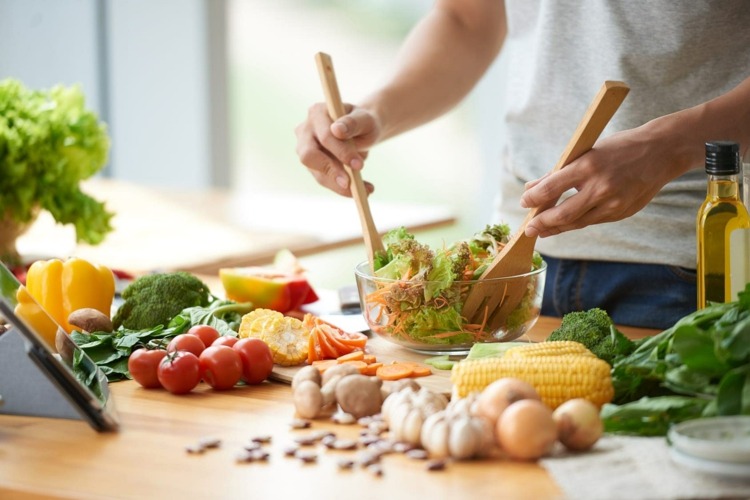
A vegan diet does not eat meat, fish, eggs and all products of animal origin and you only eat plant-based food. That the plant-based diet is one-sided and boring is nothing more than just a myth. Vegetable substitutes for meat, cheese and milk are more common than ever and can be found in every supermarket. A survey conducted in England found that 98% of people who regularly buy meat substitute products also consume normal meat. Anyone who deals extensively with the concept of veganism will quickly find out that there are an unbelievable number of healthier alternatives to the prohibited foods. This means that dairy products can be easily replaced with almond or oat milk. Legumes and whole grain rice are very high in protein and fiber and a very popular alternative to meat. Beginners in particular who need some inspiration for delicious recipes will find what they are looking for on numerous websites and blogs. Vegan nut corners, cheesecake, lasagna or pizza – all of that sounds anything but boring.
Being vegan is far too expensive.

People often think that even if the vegan diet is healthy, it is also a luxury that not everyone can afford. Yes – the vegan diet can be expensive, but it doesn't have to be. The numerous meat and cheese alternatives or other vegan products such as ice cream on the market that are not exactly cheap are responsible for this myth. For example, 200 grams of “vegetable meat” costs the same as 1 kg of chicken meat, while for a can of beans and chickpeas you pay less than 1 euro. However, a balanced plant-based diet focuses exclusively on the consumption of fruits, vegetables, legumes and whole foods. Processed foods should only be the exception. The long transport routes for exotic seeds and fruits also have an impact on the price. Protect your wallet and prefer seasonal and regional products.
The vegans suffer from deficiency symptoms and have to consume nutritional supplements.
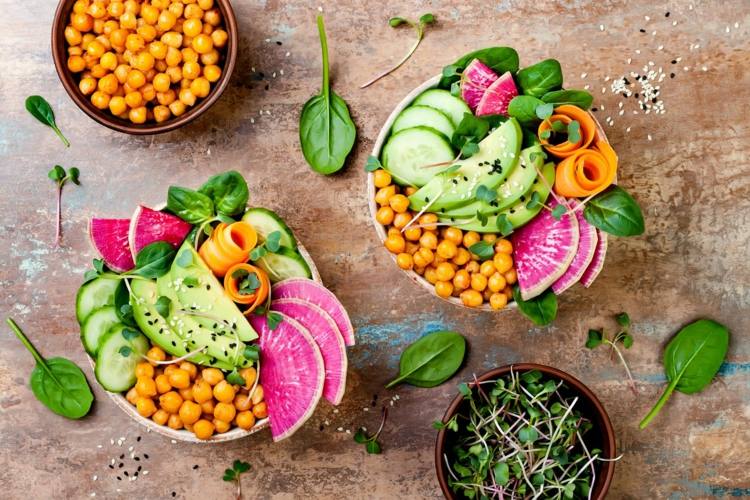
This is arguably the most common myth about plant nutrition, and it couldn't be further from the truth. Did you know that around 30% of Germans have to take supplements, but only 2% are actually vegans? Whether the body is supplied with all essential vitamins and nutrients primarily depends on the combination of the foods and the correct implementation of the nutritional form. Only vitamin B12 is considered to be particularly critical since it only occurs in foods of animal origin. Something few people realize is that vegans are better supplied with folic acid, vitamin C and fiber compared to meat eaters. In addition, the range of foods enriched with vitamins (vitamin D in muesli, vitamin B12 and calcium in vegetable milk and omega-3 fatty acids in bread) is constantly growing.
Most vegans suffer from calcium deficiency

How can the vegan diet be healthy if you only get calcium from dairy products? Now that's just another mistake and there are a variety of excellent herbal calcium sources. Calcium plays a vital role in bone health and effective blood clotting, and its deficiency can lead to osteoporosis and bone mineral density. The daily requirement of a healthy adult is 1000 mg and in men and women from 50 years – 1200 mg. In order to meet the need with a purely plant-based diet, it is very important to put the food together correctly. Foods with a high calcium content include:
- Green leafy vegetables
- Kale
- broccoli
- kohlrabi
- legumes
- Carob flour
- tofu
- soybeans
- Sesame seeds
- Chia seeds
- almonds
- dried goji berries and figs
Vegans cannot meet their protein needs

It is a gross misconception that the only way to meet the daily protein requirement is only by consuming meat. An adult woman needs 46 grams of protein a day and a man – 56 grams. Protein is in all foods and the selection of plant-based alternatives is huge. Through a varied and sensible vegan diet with an adequate calorie intake, vegans can easily meet their protein needs. Legumes, yeasts and freshwater algae in particular have a high protein content. Below are the best vegetable protein sources:
- soybeans
- lenses
- peas
- Kidney beans
- quinoa
- mushrooms
- spinach
- watercress
- broccoli
- mustard greens
- wheat germ
- nuts
- hemp seeds
The plant-based diet makes you tired and is not suitable for athletes

This statement may apply to people who have not dealt sufficiently with the nutritional concept. However, the number of many athletes and athletes worldwide shows that the vegan diet is healthy and can have a positive impact on performance. There is a direct correlation between the meal and the endothelial, The endothelium is a layer of blood vessels that regulates blood flow throughout the body. In other words, it knows which organs or muscles need more blood. If it is damaged, the athlete's performance will be affected. According to a study, a single hamburger can not only impair blood flow, but also increase inflammation levels by as much as 70%.

Vegetable proteins come packaged in minerals, antioxidants, phytochemicals and vitamins that relieve inflammation and are good for the microbiome. In this way, blood supply and performance are optimized. The vegan-eating professionals include, for example, Serena Williams, Lewis Hamilton, Novak Djokovic and also the German “strongman” Patrick Boboumian. They are all the clear proof that you can break world records even without animal products. The high proportion of fruits and vegetables in the vegan diet brings additional benefits for active people. They supply our body with wholesome minerals, vitamins and phytochemicals that have anti-inflammatory effects. This in turn contributes to faster muscle regeneration and strengthening of the immune system.
The plant-based diet does not fill you up

This myth is based primarily on people's opinions about what vegans eat. There is still a misconception that a vegan diet only feeds on boring salads and tofu. Legumes, grains, nuts and vegetables are also part of the menu and since these foods are very high in fiber, they ensure a longer feeling of satiety. And as with any other form of nutrition, planning is essential, at least initially.
Eating soy is unhealthy
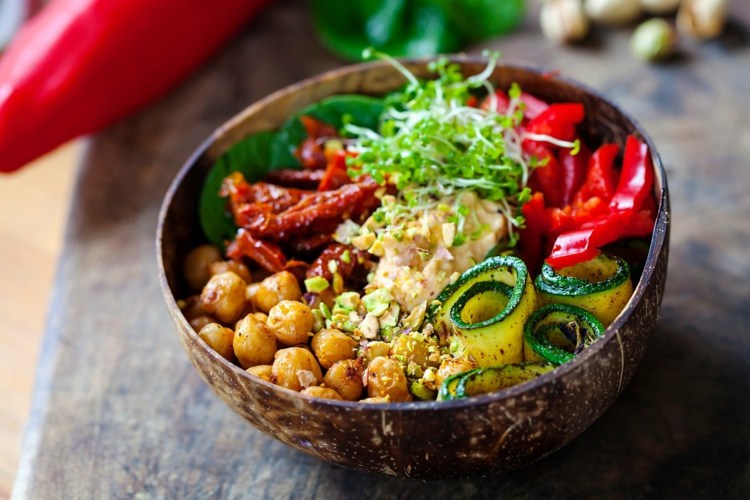
Veggie minced meat, soy yogurt or milk – soy-based products are becoming increasingly popular and are an integral part of a vegan diet. The soybean is characterized by a high content of protein, fiber and antioxidants and is a very healthy legume.Soy products don't increase that estrogen Mirror. They contain compounds that look like estrogen but work in opposite ways and can block some of our estrogen receptors. This will prevent you from docking the real estrogen sources. However, these connections are gradually released during the digestive process and have practically no influence on our body. Foods that contain real estrogen are animal products such as eggs, chicken and dairy products. They can significantly influence the body's hormone levels, Only drinking cow's milk can raise a man's estrogen levels by 26% in just 1 hour and lower testosterone levels by 18%. Several scientific studies have been able to dispel all of these soybean myths and prove that the consumption of soy products has no negative health effects.
Veganism is an eating disorder
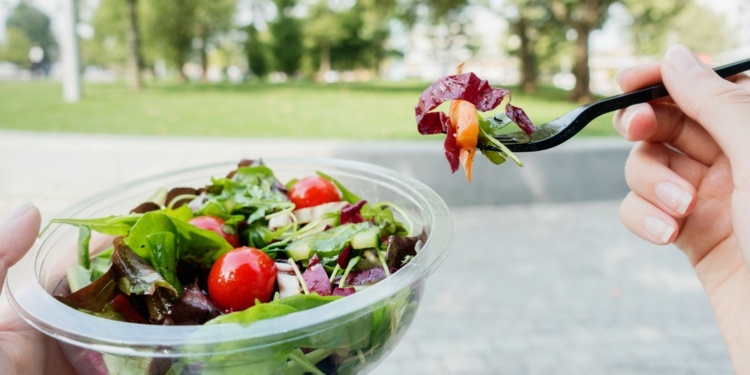
The media are increasingly trying to link the vegan diet to mental illnesses such as anorexia or orthorexia. Now it's important to understand that a plant-based diet can be a symptom of an eating disorder, but it doesn't have to be the cause. Typical of Orhorexia nevrosa is the obsessive and excessive fixation on healthy foods. Although this could lead to the removal of unhealthy products of animal origin from the menu, it has nothing to do with the plant-based diet. Some people even avoid fruits and vegetables because they can be contaminated with pesticides. For many, veganism has become a kind of philosophy of life. The focus is not only on food, but on clothing made of leather, wool, fur, silk and down, and only cosmetics that are free from animal testing are used. So it would be wrong to call veganism an eating disorder.
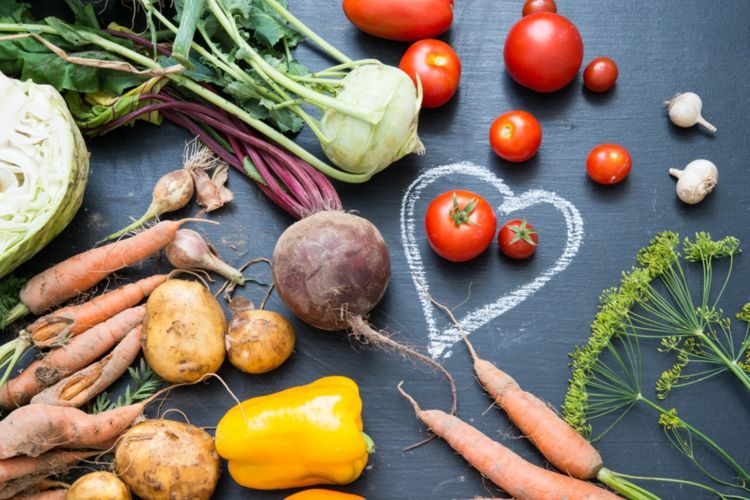
The post Vegan diet healthy: The 9 most common myths and mistakes at a glance! appeared first on Deavita.com | Living ideas, design, hairstyles, make-up, lifestyle, health and beauty tips.





















